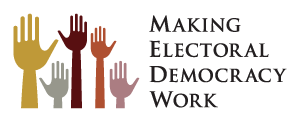Voting for Coalitions
| Although all electoral systems may offer opportunities for strategic behavior, strategic voting has long been considered unimportant in proportional representation systems. A significant proportion of voters in PR systems, however, does not vote for their most preferred party. My work on strategic voting in PR systems explores theoretically and empirically the incentives that voters in PR systems face. Voters that care about policy outcomes will aim to shape what coalitions form and the balance of power of the coalition partners. The implication of this is that voters may, e.g., avoid wasting their votes on parties that are unlikely to form coalition or vote for formateurs that are likely to form a ‘desirable’ coalition. In some circumstances voters even have an incentive to vote for parties that they would like to stay out of government in order to make them undesirable coalition partners for other parties. |
Cabinet Management and Policy Outcomes
| Decision making power in parliamentary system is highly concentrated the cabinet – most legislation originates in the cabinet and most of it is adopted by parliament. In contrast, opposition and private members’ bills have, in most places, far lower chance of success. Yet, we know very little about decision making within government cabinets. From the point of view of representative democracy this is problematic. How can voters be expected to make rational decisions at election time if they have little idea about how party platforms are translated into policy outcomes. The projects aims to cast a light on how government cabinets organize and the factors that affect the influence that individual coalition parties have on policy outcomes. |
Primary Elections and Female Representation
| The project is funded by the Icelandic Equality Fund. The aim of the project is to investigate the sources of female under-representation in the Icelandic parliament. The Icelandic political parties employ an unique system of primary elections. The preferential voting systems allows an opportunity to evaluate the extent to which voters discriminate against female candidates. |
Making Electoral Democracy Work: Party Strategies
| Making Electoral Democracy Work is research project lead by Andre Blais and generously funded by a $2.5M (CAD) grant from the Social Science and Humanities Research Council of Canada. Matt Golder and I lead the party strategies component of the project. The project aims to consider all aspects of the strategies that parties adopt during electoral campaigns; inter-party coordination, candidate selection, position taking, and mobilization. For that purpose we will collect data on party strategies in 27 elections in 5 countries, e.g., party manifestos, TV ads, press releases, and media coverage. The data will allow us to consider the factors influencing the strategic calculations of the parties over the duration of the campaign. Combined with voter survey data, collected for the same elections, we will also examine how party strategies affect voters’ decisions and attitudes. |

 https://orcid.org/0000-0003-4117-160X
https://orcid.org/0000-0003-4117-160X